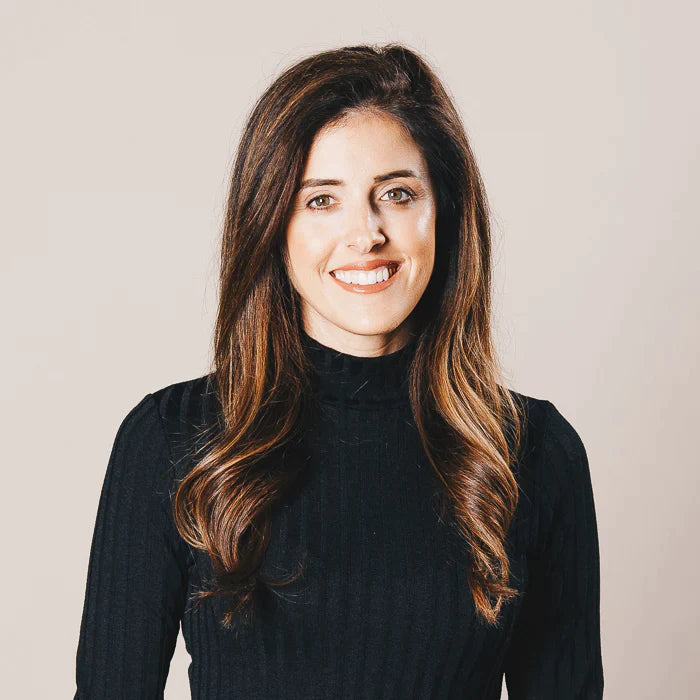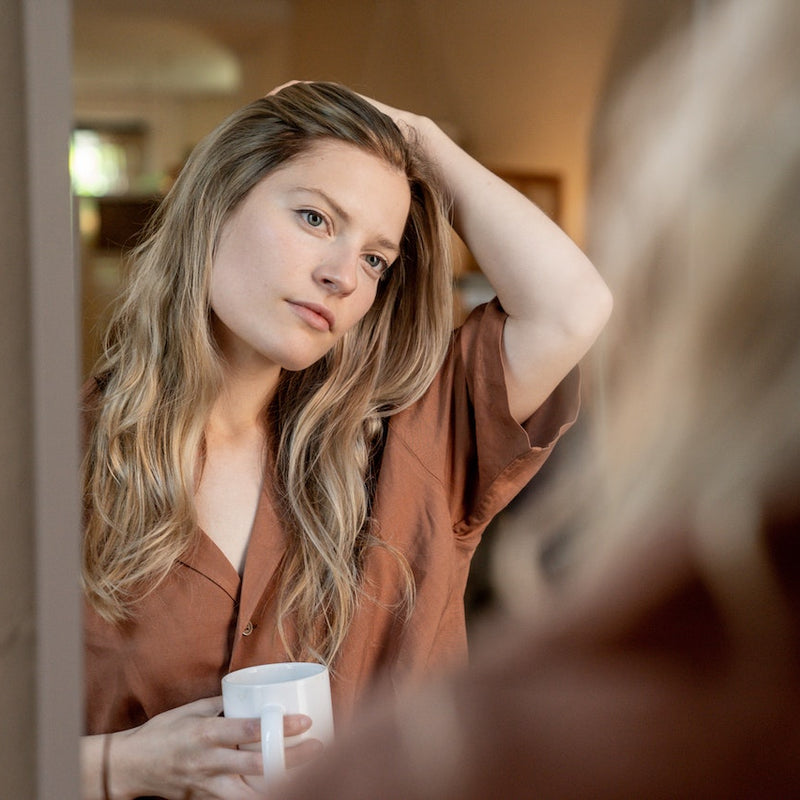How to Find the Best Fertility Clinic

So you’re ready to meet with a fertility specialist and plan your path forward. How do you find the right clinic? Who are the best doctors? We’ll break this down, and more.
By Halle Tecco, MBA, MPH
There are nearly 500 fertility clinics and 1,700 reproductive endocrinologists (fertility doctors) in the United States. That’s a lot to choose from, although you may only have a few nearby. I have been lucky to have been in the care of several amazing physicians during my fertility journey. Deciding who to work with is a big decision, and I want to share some steps to ensure you find the right partner.
Step 1: Narrow down your options
The very first thing you should do when looking for a fertility clinic is verify that it is a member of The Society for Assisted Reproductive Technology (aka SART), a non-profit organization that sets the standards for infertility care. When you start with SART, you can rest assured that you are getting the highest quality of care. You can search for SART member clinics in your area here.
When I was searching for a clinic, I created a spreadsheet of my options and evaluated each clinic based on the following:
- Location, location, location. Fertility treatments require constant visits to the clinic, so travel should be a major consideration. Is there a clinic near your home you like? Or is there another clinic that you love so much it may be worth the trip? Remember - you can have your “monitoring” appointments at a clinic near you, and do your major procedures (egg retrieval and transfer) at a clinic farther away.
- Quality of the lab. Something I learned on my journey is the importance of the fertility clinic’s lab and embryology team. I recommend that the clinic you choose and its embryology lab are accredited by College of American Pathologists, Clinical Laboratory Improvement Amendments of 1988 (CLIA), or a similar organization. FertilityIQ has a great resource to help understand why the embryologist, your child’s first babysitter, is so important.
- Size of clinic. This is completely up to your personal preference. I’ve gone to enormous clinics where I’ve felt like a cog in the system, but knew I was getting great care from top doctors. I’ve also gone to smaller clinics where I felt really close to my fertility doctor, but had to wait to get started since egg retrievals are often done in batches at smaller clinics. Weigh the pros and cons of small versus large clinics, and what matters most to you.
- Costs. Is the clinic transparent about the costs? Do they tell you upfront? Is it “in-network” with your health insurance? Do they have reasonable payment plans?
- Are they good? One cool thing about fertility clinics, is that they are required to report their IVF outcomes (pregnancies) to the CDC. You can view the data on each clinic here. Keep in mind, accurate and complete reporting of ART success rates is complicated. Clinics may have differences in patient selection, treatment approaches, and cycle reporting practices which may inflate or lower pregnancy rates relative to another clinic.
Step 2: Ask a friend
Of course, a great way to find a clinic is to ask for a referral from a friend or your OBGYN. Given that one in eight couples struggle with infertility, there’s a good chance one of your friends or colleagues has gone through this journey before you. Ask then which clinics they evaluated and who they ended up working with.
When my friends ask me for a referral, here are the doctors and clinics I tell them to look into:
Atlanta: Dr. Monica Best serves at the Atlanta branch of Shady Grove Fertility. Her own struggle with infertility renewed her life’s passion to become a Reproductive Endocrinologist and Infertility specialist.
Boston: Dr. Kim Thornton is at the large and well-respected Boston IVF. She is also the Division Director of REI at the Beth Israel Deaconess Medical Center, and an Assistant Professor in the Department of Obstetrics, Gynecology and Reproductive Biology at Harvard Medical School.
Charleston: We love Dr. Heather Cook at Coastal Fertility Specialists. She is a strong advocate for women’s health. Her research interests have focused on immunology in reproductive disorders, IVF, embryo development and assessment, oocyte donation, embryo cryopreservation, and recurrent pregnancy loss.
Chicago: Dr. Roohi Jeelani has a special interest onco-fertility, toxins impact on reproductive function, and chemotherapy and oocyte cryopreservation to give those facing cancer a better chance of seeing their dream of parenthood come true.
Miami: Dr. Kimberly Thompson at IVFMD is graduate of the Brown University School of Medicine and completed her fellowship at UCLA Medical Center. She is fluent in English and Spanish.
New York City: Dr. Brian Levine is the founding partner and practice director of CCRM New York. Dr. Levine has over 50 publications and was recently awarded the highest prize by the American Society of Reproductive Medicine.
San Fransisco: Dr. Dana McQueen at RMA Northern California covers the full range of reproductive endocrinology and infertility care, including comprehensive diagnostic evaluation, intrauterine insemination (IUI), in vitro fertilization (IVF), recurrent pregnancy loss, diminished ovarian reserve and fertility preservation (egg freezing). Dr. Meera Shah is a reproductive endocrinology and fertility specialist at NOVA IVF in Mountain View, California. Her clinic is a smaller practice and offers more personalized services.
Seattle: Dr. Lora Shahine is a hit on Tik Tok, and with her patients. She has published over 50 peer-reviewed research projects and is an accomplished author of many blogs and articles as well as two books.
NY/LA/SF: If you want a clinic that feels more like a spa or Soul Cycle, check out KindBody which is quickly expanding across the US to deliver high-quality fertility care to millennial women. (Disclaimer: I’m an investor in KindBody).

Step 3: Call your top 2-3 fertility clinics and schedule a consultation
At your first visit, you will sit down with your doctor to discuss any challenges you have faced trying to build a family. Your doctor will ask you about how long you’ve been trying, if you’ve been having regular menstrual cycles, and how you have been timing intercourse (ovulation tests, apps, menstrual calendars, etc). You will also review your medical and surgical history to see if there are any factors that may have led to difficulty getting pregnant or staying pregnant.
Your first visit can get personal quickly. You will describe any prior pregnancies, including miscarriages, and may talk about experiences you haven’t even discussed with close friends. It’s not uncommon to become tearful during your first fertility visit. Read more in Dr. Dana McQueen’s article, Preparing for Your First Fertility Clinic Appointment.
Step 4: Mentally prepare to move forward, and go all-in
Picking a doctor and a clinic is an exciting next step. You will likely work with a patient coordinator at the clinic to map out your treatment plan. Whether your next steps are fertility drugs, IUI, or IVF, now is the time to be the healthiest version of yourself both physically and mentally.
I intimately know the stress and anxiousness that comes along with the unknown of fertility treatments. I wish I could say there was a trick to get you through this time, but it’s different for everyone. For me, it’s friends, baking, gardening, and yoga. Whatever helps you find happiness and inner peace, now is the time to indulge.
Wishing you the best!
Reach Out, We're Here
Have questions about your order or products? For the speediest answer, check out our FAQ section. Need something else? Come find us below.
Please keep in mind our regular business hours; Monday-Friday, 9am-5pm CT.
Customer Support
support@natalist.com
Press Inquiries
media@everlyhealth.com
Business & Partnerships
team@natalist.com
Affiliates + Influencers
team@natalist.com
Job Openings
Careers Page





















